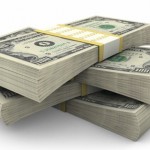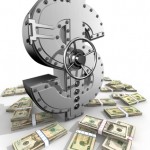The cash flow should be based on the financial planning of individuals and businesses. You will wonder: why the obsession of the financiers with the cash flows? One way to answer this question is simply stating that in real life you can only cancel debts or buy financial assets with cash, that is, if I want to terminate an obligation to a financial institution or if I want to buy shares on the stock trade, the only possibility is to do so with cash, promissory note or check (with money obviously).
Then, in case the business does not get anything to have a business that generates an interesting accounting utility, but that does not generate a cash flow positive and attractive, as the utility is a mere representation of a positive outcome from the point of view of generally accepted accounting principles, but what really creates value is the ability to generate cash flows in business.
The same is true for people, since the way in which they have to have a quiet financial (and personal) life is being able to at least cover all the basic monthly expenses with the income they can generate with (or) work or the investments that they possess.
In regards to how to assemble the cash budget, the first thing is always to start with the expected revenue generation, as it is the basis of any analysis, in the sense that a certain level of income allows you to plan and carry out a certain standard costs. For most people its great or only source of income while they are economically active is generated for his work as dependent or independent, being generally more stable than those generated as an employee as an entrepreneur. Then do not always have clarity of how much I will be able to generate monthly income, also considering, especially in times of crisis, the threat of losing employment.
In terms of cash outflows (expenses), the categories of ordinary and extraordinary expenses to consider. In the case of recurrent costs, include such items under any circumstances one has to take on a regular basis, such as rent or dividends of the house or apartment; accounts of public utilities (electricity, water, gas, phone, internet, etc); tuition of the college or university; insurance; and common costs, among others. In the case of extraordinary expenses, consider the unexpected illnesses or accidents, for example, as well as investments that so often you have to do to, for example, keep the house in good condition, as might be the painted thereof, or expenses related to the change of an appliance that has already served his useful life.
From the above it is recommended that any person makes a budget of his monthly income and expenses, assign a reasonable amount for unforeseen and extraordinary events, so as to have it referred to a priori, even in some proportion.
Finally, given the uncertainty in the capacity of generating income that normally exists, because the cost is normally “in any event”, it is very important to generate the one hand, the ability to save, so to have some background that allows to be used in case the income is lower than expected or higher expenses.
Moreover, it is also useful to have a financial backing, credit lines, cards (with space available) or even ability to make a consumer loan for just face bounded periods of difference between income and expenses of a person.
If the period is expected that this mismatch is long, the solution is also (and expensively) to “tighten its belts” because, otherwise, it will not be the capacity in the future to pay the credit cards used for a temporary purpose. In any case, the great utility to perform and adapt a cash budget on a regular basis is that you anticipate such situations and thus take corrective decisions with greater anticipation and calm.








